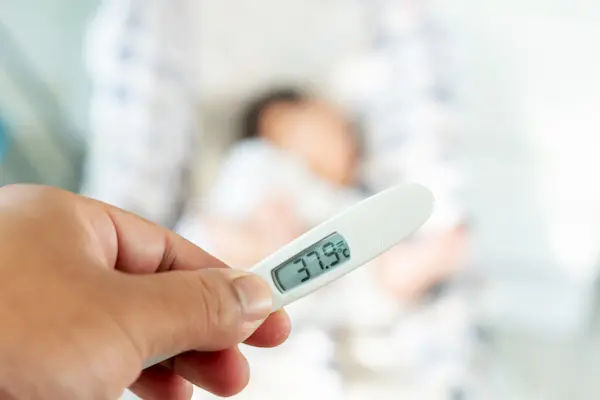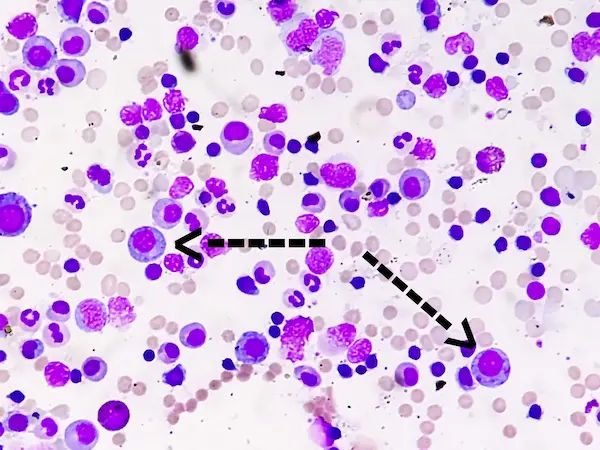Causes, Symptoms, and Treatments of Hypercalcemia
Learn about hypercalcemia, including its causes, symptoms, and treatment options. Understand how high calcium levels affect the body and ways to manage the condition.


Hypercalcemia is a condition where there is too much calcium in your blood. While calcium is essential for strong bones, teeth, and proper muscle and nerve function, having too much of it can cause health problems. If you or someone you know has been diagnosed with hypercalcemia, or if you suspect you might have it, this guide will help you understand the causes, symptoms, and available treatments in simple terms.
What Causes Hypercalcemia?
Hypercalcemia occurs when the calcium levels in your blood rise above normal. Several factors can contribute to this condition:
1. Overactive Parathyroid Glands (Primary Hyperparathyroidism) – These tiny glands in your neck regulate calcium levels. If they produce too much parathyroid hormone (PTH), calcium levels can rise.
2. Cancer – Some cancers, especially lung, breast, and blood cancers, can release substances that increase calcium levels.
3. Vitamin D Overuse – Too much vitamin D (from supplements or diet) can cause your body to absorb excess calcium.
4. Dehydration – Not drinking enough water can concentrate calcium in your blood.
5. Certain Medications – Some drugs, like thiazide diuretics (water pills) or lithium, can raise calcium levels.
6. Kidney Problems – If your kidneys aren’t working well, they may not remove calcium properly.
7. Immobility – Being bedridden for long periods can weaken bones, releasing calcium into the bloodstream.
Consult a Top Specialist
What Are the Symptoms of Hypercalcemia?
Mild hypercalcemia may not cause noticeable symptoms, but as levels rise, you may experience:
- Fatigue and weakness – Feeling unusually tired or weak.
- Frequent urination and thirst – Needing to pee more often and feeling very thirsty.
- Digestive issues – Nausea, vomiting, constipation, or stomach pain.
- Bone pain and muscle aches – Calcium imbalances can weaken bones and cause discomfort.
- Confusion or memory problems – High calcium can affect brain function.
- Heart palpitations – Irregular heartbeats in severe cases.
If left untreated, severe hypercalcemia can lead to kidney stones, osteoporosis (weak bones), and even heart problems.
How Is Hypercalcemia Diagnosed?
If your doctor suspects hypercalcemia, they may recommend:
- Blood tests – To check calcium, PTH, and vitamin D levels.
- Urine tests – To see how much calcium your kidneys are excreting.
- Imaging tests – X-rays, CT scans, or bone density tests to check for bone loss or tumors.
Early diagnosis helps in managing the condition before complications arise.
Get Your Health Assessed
Treatment Options for Hypercalcemia
Treatment depends on the cause and severity of your condition:
1. Mild Hypercalcemia
- Drink more water – Staying hydrated helps flush out excess calcium.
- Reduce calcium-rich foods – Avoid excessive dairy, fortified juices, or calcium supplements unless prescribed.
- Monitor vitamin D intake – Too much can worsen calcium absorption.
2. Moderate to Severe Hypercalcemia
- IV fluids – Given in hospitals to help lower calcium quickly.
- Medications – Bisphosphonates (to slow bone breakdown), calcitonin (to lower calcium), or steroids (if caused by vitamin D excess).
- Dialysis – In extreme cases, if kidneys can’t filter calcium properly.
3. Treating the Underlying Cause
- Surgery – If an overactive parathyroid gland is the cause, removing it may be necessary.
- Cancer treatment – If cancer is responsible, treating the tumor can help lower calcium.
- Adjusting medications – If certain drugs are causing high calcium, your doctor may change your prescription.
Lifestyle Tips to Manage Hypercalcemia
- Stay hydrated – Drink plenty of water to help your kidneys flush out excess calcium.
- Limit calcium supplements – Only take them if prescribed by a doctor.
- Exercise regularly – Weight-bearing exercises (like walking) help maintain bone strength.
- Eat a balanced diet – Include magnesium and potassium-rich foods (nuts, bananas, leafy greens) to support calcium balance.
- Avoid excessive vitamin D – Unless medically advised, don’t take high-dose supplements.
When to See a Doctor
If you experience symptoms like extreme fatigue, confusion, severe nausea, or irregular heartbeat, seek medical help immediately. Early treatment can prevent complications.
Need Help? Book a Consultation Today!
If you suspect hypercalcemia or need expert advice, Apollo24|7 offers easy online consultations with specialists. You can also schedule blood tests to check your calcium levels from the comfort of your home.
Final Thoughts
Hypercalcemia is manageable with the right care. By understanding its causes, recognizing symptoms early, and following medical advice, you can maintain healthy calcium levels and prevent complications. Stay informed, stay healthy!
Consult a Top Specialist
Consult a Top Specialist

Dr. Anand Ravi
General Physician
2 Years • MBBS
Bengaluru
PRESTIGE SHANTHINIKETAN - SOCIETY CLINIC, Bengaluru

Dr. Vivek D
General Physician
4 Years • MBBS
Bengaluru
PRESTIGE SHANTHINIKETAN - SOCIETY CLINIC, Bengaluru

Dr Syed Mateen Pasha
General Physician
2 Years • MBBS
Bengaluru
PRESTIGE SHANTHINIKETAN - SOCIETY CLINIC, Bengaluru

Dr. Srujana Mulakalapalli
General Physician/ Internal Medicine Specialist
5 Years • MBBS, MD (GENERAL MEDICINE)
Bengaluru
Apollo Medical Center, Marathahalli, Bengaluru
(25+ Patients)

Dr. Harshendra Jaiswal
General Physician/ Internal Medicine Specialist
12 Years • MBBS , MD (General medicine)
Kolkata
108 DHANA DHANVANTARI Clinic, Kolkata
(25+ Patients)
Consult a Top Specialist

Dr. Anand Ravi
General Physician
2 Years • MBBS
Bengaluru
PRESTIGE SHANTHINIKETAN - SOCIETY CLINIC, Bengaluru

Dr. Vivek D
General Physician
4 Years • MBBS
Bengaluru
PRESTIGE SHANTHINIKETAN - SOCIETY CLINIC, Bengaluru

Dr Syed Mateen Pasha
General Physician
2 Years • MBBS
Bengaluru
PRESTIGE SHANTHINIKETAN - SOCIETY CLINIC, Bengaluru

Dr. Srujana Mulakalapalli
General Physician/ Internal Medicine Specialist
5 Years • MBBS, MD (GENERAL MEDICINE)
Bengaluru
Apollo Medical Center, Marathahalli, Bengaluru
(25+ Patients)

Dr. Harshendra Jaiswal
General Physician/ Internal Medicine Specialist
12 Years • MBBS , MD (General medicine)
Kolkata
108 DHANA DHANVANTARI Clinic, Kolkata
(25+ Patients)



.webp)
.webp)
